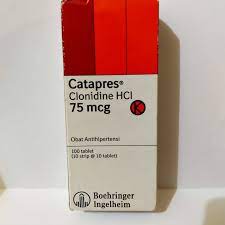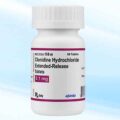A controlled substance is generally a drug or chemical whose manufacture, possession, or use is regulated by a government, such as illicitly used drugs or prescription medications that are designated by law. A drug or other substance may be tightly controlled by the government because it may be abused or cause addiction. The control applies to the way the substance is made, used, handled, stored, and distributed.
Recognizing the potential that certain medications have for abuse and dependence, Congress enacted the CSA as part of the Comprehensive Drug Abuse Prevention and Control Act of 1970. This act categorizes all substances that are regulated under federal law into “schedules,” depending on how potentially dangerous they are. The schedule the drug is placed under depends on its medical use, its potential for abuse, and its safety or how easily people become dependent on it.
Careful consideration has gone into this categorization. The control of drugs through law exists to protect people from the harm that these drugs can do. It is based on research from many different sources into the potential harmfulness of the drug, both to individuals and to society.
What is Clonidine?
Clonidine (Catapres) is a medication used to treat high blood pressure, spasticity, and certain pain conditions. It is used by mouth, by injection, or as a skin patch. Clonidine was originally developed in 1962 for use as a nasal decongestant. However, rapid recognition of its ability to reduce blood pressure led to the FDA approval of this agent for the treatment of hypertension in 1974. During the 1970s, clonidine gained popularity as a treatment for hypertension since it was not linked with the postural and exercise-induced hypotension common in other antihypertensive regimens.
High blood pressure is a common condition and when not treated, can cause damage to the brain, heart, blood vessels, kidneys, and other parts of the body. Damage to these organs may cause heart disease, a heart attack, heart failure, stroke, kidney failure, loss of vision, and other problems. In addition to taking medication, making lifestyle changes will also help to control your blood pressure. These changes include eating a diet that is low in fat and salt, maintaining a healthy weight, exercising at least 30 minutes most days, not smoking, and using alcohol in moderation.
Clonidine treats high blood pressure by decreasing your heart rate and relaxing the blood vessels so that blood can flow more easily through the body. Clonidine extended-release tablets may treat ADHD by affecting the part of the brain that controls attention and impulsivity. Clonidine extended-release (long-acting) tablets (Kapvay) are used alone or in combination with other medications as part of a treatment program to control symptoms of attention deficit hyperactivity disorder (ADHD; more difficulty focusing, controlling actions, and remaining still or quiet than other people who are the same age) in children.
Is Clonidine A Controlled Substance?
Although clonidine is NOT a controlled substance under the Controlled Substances Act (CSA) and does not have much street value, it does have abuse potential. It is often abused in conjunction with other drugs, such as methadone, heroin, and prescription painkillers. Doctors are often more willing to write a prescription for clonidine because its abuse potential isn’t high.
It is important to note that the Controlled Substances Program (CSP) of the FDA aims to curb these abuses and to promote public health by minimizing risks associated with problematic use of controlled substances while enabling appropriate access for medical use. SEE: Is Clonidine A Benzodiazepines?
Side Effects Of Clonidine
Along with its needed effects, a medicine may cause some unwanted effects. Although not all of these side effects may occur, if they do occur they may need medical attention.
Check with your doctor immediately if any of the following side effects occur:
Less common
- Mental depression
- swelling of the feet and lower legs
Rare
- Anxiety
- blistering, burning, crusting, dryness, or flaking of the skin
- chest pain or discomfort
- confusion as to time, place, or person
- decreased urine output
- dilated neck veins
- drowsiness
- dry mouth
- fast, pounding, or irregular heartbeat or pulse
- fever
- general feeling of discomfort or illness
- holding false beliefs that cannot be changed by fact
- hyperventilation
- irregular breathing
- irritability
- itching, scaling, severe redness, soreness, or swelling of the skin
- large, hive-like swelling on the face, eyelids, lips, tongue, throat, hands, legs, feet, or sex organs
- lightheadedness, dizziness, or fainting
- mental depression
- paleness or cold feeling in the fingertips and toes
- pounding, slow heartbeat
- problems in urination or increase in the amount of urine
- raised red swellings on the skin, lips, tongue, or the throat
- restlessness
- seeing or hearing things that are not there
- shaking
- shortness of breath
- skin rash
- swelling of the face, fingers, feet, or lower legs
- tightness in the chest
- tingling or pain in the fingers or toes when exposed to cold
- trouble with sleeping
- troubled breathing
- unusual excitement, nervousness, or restlessness
- unusual tiredness or weakness
- vivid dreams or nightmares
- weight gain
- wheezing
Get emergency help immediately if any of the following symptoms of overdose occur:
Symptoms of overdose
- Dizziness (extreme) or faintness
- feeling cold
- pinpoint pupils of the eyes
- unusual tiredness or weakness (extreme)
Some side effects may occur that usually do not need medical attention. These side effects may go away during treatment as your body adjusts to the medicine. Also, your health care professional may be able to tell you about ways to prevent or reduce some of these side effects. Check with your health care professional if any of the following side effects continue or are bothersome or if you have any questions about them:
More common
- Constipation
Less common
- Darkening of the skin
- decreased sexual ability
- dry, itching, or burning eyes
- loss of appetite
- nausea or vomiting
Rare
- Blurred vision
- decreased interest in sexual intercourse
- hair loss or thinning of the hair
- inability to have or keep an erection
- leg cramps
- loss in sexual ability, desire, drive, or performance
- muscle or joint pain
- pale skin
- swelling of the breasts or breast soreness in both females and males
- weakness
Other side effects not listed may also occur in some patients. If you notice any other effects, check with your healthcare professional.




